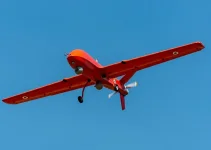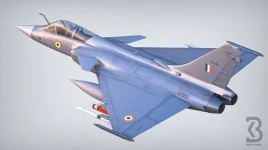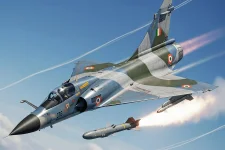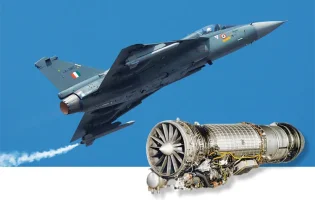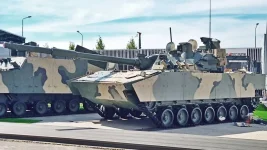- Views: 4K
- Replies: 19
Solar Defence and Aerospace Limited, an entity within the Solar Industries group, has announced its significant entry into the development of advanced unmanned aerial vehicles (UAVs).
The company plans to design and manufacture both Medium Altitude Long Endurance (MALE) and High Altitude Long Endurance (HALE) class drones, financing the project independently.
This initiative, supported notably by the Indian Army, positions Solar Defence as a new domestic player in a field where the state-owned Defence Research and Development Organisation (DRDO), specifically its Aeronautical Development Establishment (ADE), has faced considerable challenges. With reported difficulties in bringing its own MALE UAV projects to fruition, ADE's slow progress has opened an opportunity for private industry.
Solar Defence, stating it understands the military's technical requirements, appears set to offer a new direction for India's indigenous UAV capabilities, boosted by the government's 'Make in India' policy encouraging private sector participation in defence. The company has already demonstrated its manufacturing capability by recently completing the delivery of 480 Nagastra-1 loitering munitions (suicide drones) to the Indian Army.
The DRDO's Tapas BH-201 project (previously Rustom-2), intended as a MALE UAV capable of operating at 30,000 feet for 24 hours, has encountered significant delays and performance issues related to weight and engine power.
As of early 2025, the Tapas remains in testing phases with no confirmed production schedule. This situation has meant continued reliance by the Indian armed forces on imported systems, such as the Israeli Heron UAVs, for critical surveillance and reconnaissance tasks. Recent reports confirm ongoing efforts to enhance the Tapas drone's capabilities to meet operational requirements.
Solar Defence aims to address this capability gap directly. Company officials indicate they are fully briefed on the Indian military's specifications and are structuring their UAV program accordingly.
The backing from the Indian Army suggests confidence in the private firm's potential to deliver where government labs have lagged, reflecting the broader national strategy of fostering self-reliance by involving private companies in complex defence projects. India's domestic defence production has seen significant growth, reaching ₹1.27 lakh crore in FY 2023-24, with the private sector contributing around 21%.
Initially, Solar Defence is concentrating on a MALE-class UAV tailored to the military's primary operational needs. The goal is a platform capable of exceeding 30,000 feet in altitude and undertaking missions lasting 28 to 30 hours. Such capabilities are essential for modern intelligence, surveillance, reconnaissance (ISR), and combat support operations.
This UAV aims to fill a niche currently lacking robust indigenous options, potentially offering a cost-effective and strategically autonomous alternative to foreign platforms.
While specific technical details are being finalized, Solar Defence anticipates unveiling a prototype concept shortly after receiving formal clearance from the Army, which is expected soon due to the military's expressed support. The company is adopting a practical development approach, combining internal innovation with established technologies available globally.
Plans include potentially sourcing proven turbo-prop engines from international manufacturers like Pratt & Whitney Canada or Honeywell, while collaborating with DRDO laboratories and other private Indian firms for sensors, avionics, and other key subsystems. This hybrid strategy is intended to shorten development time and ensure system reliability by integrating global expertise with domestic development.
Looking further ahead, Solar Defence harbours ambitions to develop HALE UAVs. These advanced drones operate at altitudes above 50,000 feet with endurance potentially exceeding 36 hours, comparable to platforms like the American MQ-9 Reaper.
HALE UAVs are vital for persistent, long-range ISR, particularly crucial along India's sensitive borders. Although the MALE UAV is the immediate focus, the aspiration to build HALE systems signals Solar Defence's intent to compete at the forefront of aerospace technology, potentially establishing India as a future exporter of sophisticated UAV systems.

